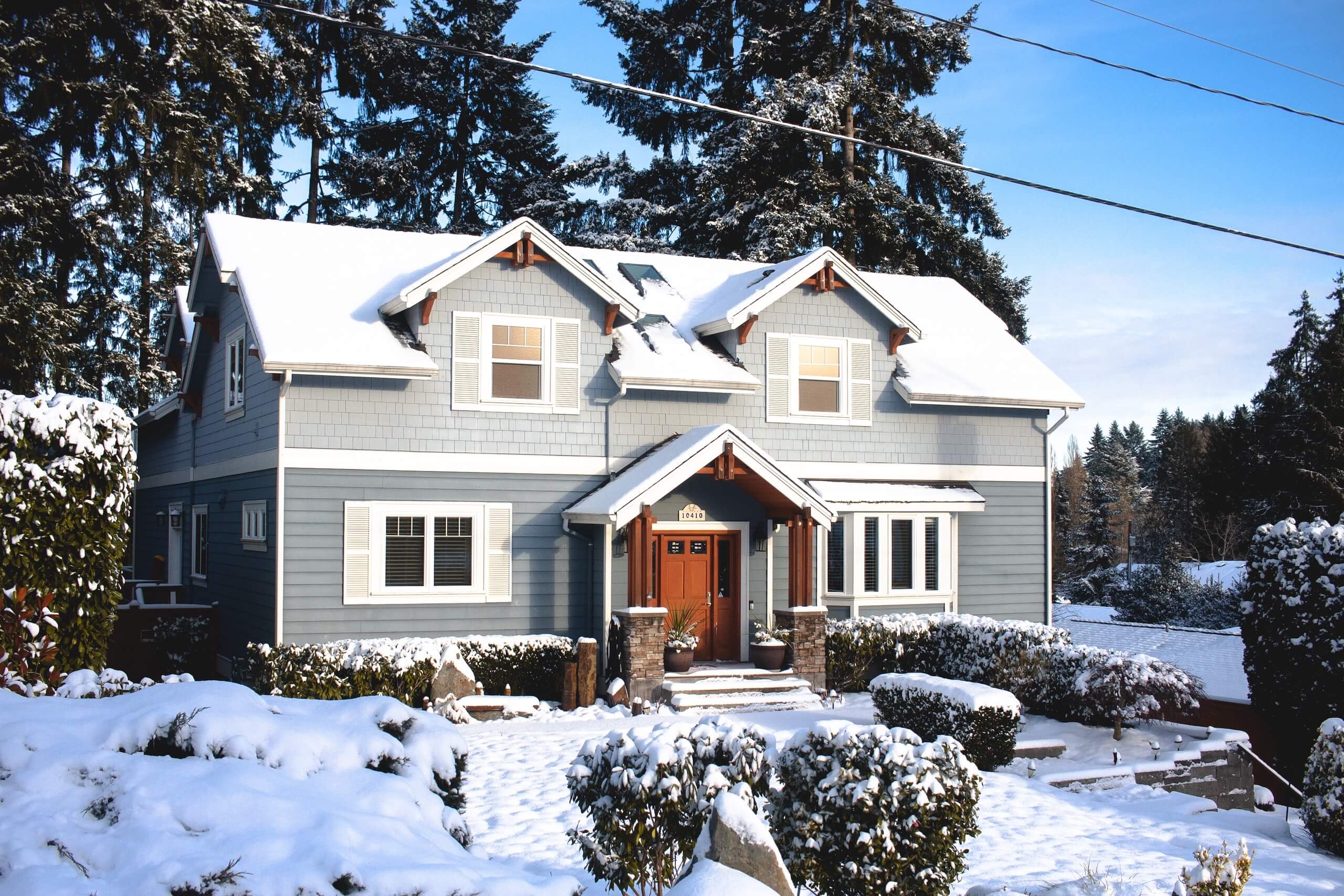Are you more forgetful in the winter than you ought to be? Do you often feel lethargic during the colder weather months? If you find yourself wondering why, then it’s time to consider the effects of winter season humidity.
Poorly regulated indoor humidity has been tied to forgetfulness and fatigue. If low humidity is causing these symptoms, there are some simple solutions to get it under control this winter.
Winter Season Humidity Levels
Summer is often warm, and with warmth comes an increase in sticky, muggy, heavy weather. That’s the effect of humidity levels rising. Temperatures then drop in the winter, and so too does the humidity. This leaves the air feeling dry, crisp and even bitter.
Humidity is simply the amount of water vapor found in the air. Warm air can hold more moisture than cold air. Too little moisture and it can dry out your skin, nose and throat. This dry feeling can cause a plethora of health and home problems.
The ideal indoor humidity range is between 40% and 60%. It’s important that your home stays within this optimal range!
The Dangers of Low Wintertime Humidity
There is a difference in temperature and humidity concerns between temperate climates and freezing climates. However, the dangers of low humidity exist in both.
When the weather is bitterly cold, and humidity all but disappears, the primary danger is dry skin. While this doesn’t sound terrible at first, it can lead to serious itchy and rashy skin and even eczema. For those already suffering from eczema or related issues, low humidity is an added complication.
Low humidity also leaves us more susceptible to colds and infections. The flu is often worse during colder months. That’s because the flu virus, and others, thrive in dry weather.
Another danger of low winter season humidity is the effect it has on wood. Many things we use in our daily life are made out of wood like furniture, wood floors or even the home itself. Wood retains moisture, and in the summer, the moisture expands. In the cold months of winter, wood loses moisture and shrinks. Sometimes it’s enough to crack or break wood and cause significant damage. This results in expensive repairs.
The Benefits of Controlling Humidity
There are several benefits of taking control of the humidity levels inside your home. Studies show occupants sleep better in the optimal humidity range. They also show a reduction in snoring, which might help your spouse sleep better too.
 More: One of the most overlooked aspects of a home is the humidity. Like climate, indoor air quality can be improved with better monitoring and management to keep you healthy all year round. Read the full article here →
More: One of the most overlooked aspects of a home is the humidity. Like climate, indoor air quality can be improved with better monitoring and management to keep you healthy all year round. Read the full article here →The right amount of moisture in the air also leads to healthier skin. It’s almost an all-natural moisturizer. Dry air is full of static electricity, leading to frizzy hair and the potential to zap others. While this isn’t much more than an annoyance most times, it can cause dry lips and skin and impact electronic devices.
Optimal humidity levels also provide significant relief for those that suffer from allergies. By creating an ideal humidity environment, you also reduce the risk of airborne illnesses. Bacteria and viruses cannot thrive in a properly humidified home. This is particularly helpful during the winter season when illness is more prevalent.
And, a properly humidified home makes it easier to regulate temperature. This increases the efficiency and the life of your home HVAC system.
What Kind of Humidifier Do I Need for Dry Air?
While we can’t control humidity outdoors, we can do something about it indoors.
There are simple, small steps such as adding houseplants that can provide extra humidity. This, however, is difficult to measure, and the effect is usually minimal.
Portable humidifiers help increase moisture but are limited to a single room. Of course, you can move a portable humidifier around the house as needed, but that can be cumbersome. Plus, you need to give the humidifier enough time to produce moisture to make the room comfortable. Depending on the size of the humidifier, this might take an hour or longer. (Not exactly a great solution when you’re ready to go to sleep!)
Rather, we recommend opting for a whole-home humidifier. Whole-home solutions are ideal because they actively improve air quality for the entire space, at once. They are also out-of-sight, out-of-mind upgrades. Whole-home humidification systems are installed directly into your HVAC system. This makes them a low-maintenance, big-impact option.
Evaporative humidifiers increase humidity by blowing warm air over a wet pad. The water then evaporates and blends with the surrounding air, making the air more humid as it circulates. Steam humidifiers heat up water and then convert it into vapor to effectively increase humidity levels.
Understanding how humidification systems work is important. Your home’s heating system will make the air in your home, which is already dry in the winter, even drier as it warms the space. And as the colder weather causes us to rely on heat more, it drives humidity levels even lower. This is where a humidifier comes in and helps stop the dry air cycle. There are two main types of humidification systems to choose from that combat poor winter season humidity.
Choosing a Whole-Home Humidifier
 More: Choosing between the two kinds of whole-home humidifier systems might seem daunting. Let’s see if we can help →
More: Choosing between the two kinds of whole-home humidifier systems might seem daunting. Let’s see if we can help →Having the ability to add in the perfect amount of moisture during the cold winter months removes the problems that come with low humidity. Another benefit is that the added moisture makes the air feel warmer overall.
Finding the Right System
If you’re looking for an effective way to control winter season humidity in your home, contact us! At IAQ Works, we can connect you with professionals who are ready to answer all of your questions and installation experts ready to help you reach your optimal comfort level today.
Frequently Asked Questions
Appropriate humidity levels for your home in winter vary based on a number of factors including the temperature outdoors. To address this question, we’ve written a new article about the ideal indoor humidity range for each region. The Best Winter Season Indoor Humidity Range for Your Home →




